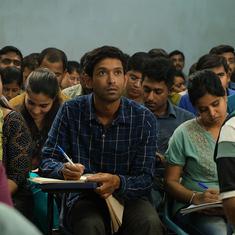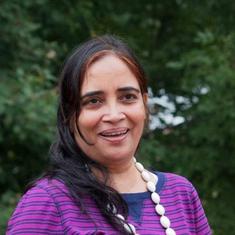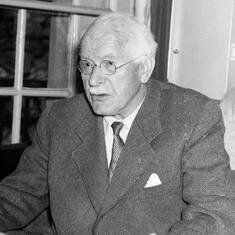Rush Hour: Centre examining impact of US tariffs, SC bans firecrackers in Delhi-NCR and more
Become a ‘Scroll’ Member to get Rush Hour – a wrap of the day’s important stories delivered straight to your inbox every evening.

Rigged rankings, fake assessments – is your degree at risk? Fund our special project: India’s Great Education Betrayal
The Union Ministry of Commerce and Industry has said it is examining the implications of the reciprocal tariffs announced by the United States. The US imposed tariffs ranging from 10% to 50% on imports from several countries, including a 26% levy on India. They will take effect on April 9.
US President Donald Trump claimed that India’s tariffs on US goods were unfair and that his administration had pushed for reductions. The Centre said it is consulting stakeholders to explore potential opportunities “that may arise due to this new development”.
India’s tariff rate is lower than that imposed on other countries such as China (34%) and Vietnam (46%). The Centre emphasised that discussions were underway to expedite a multi-sectoral bilateral trade agreement with the US.
Trump said the tariffs would rebalance trade and boost American industry but his decision has led to concerns about a global trade war. Read on.
A history lesson for Trump on how things went the last time the US slapped tariffs on imports
The Supreme Court has imposed a year-long ban on the manufacture, sale, storage and use of firecrackers in Delhi and the National Capital Region, saying that a limited ban of three or months would be ineffective as crackers would continue to be sold and stored for use during the ban period.
The bench noted that the right to health and a pollution-free environment is part of the fundamental right to life. The court also ruled that “green crackers” would not be exempt from the ban, citing a government report that found their emissions to be just 30% lower than conventional crackers.
Delhi’s air quality worsens during winter, primarily due to low wind speeds, emissions from vehicles and industries, and stubble burning in Punjab and Haryana. Read on.
Why is the Supreme Court’s regulation of firecrackers so ineffective in curbing air pollution?
The Supreme Court has upheld the Calcutta High Court’s April 2024 order cancelling around 25,000 appointments made by West Bengal’s School Service Commission. The court said the recruitment process was tainted by manipulation and fraud, and that any appointments made through cheating were invalid.
The High Court had earlier nullified the 2016 State Level Selection Test after a re-evaluation found that selected teachers were appointed based on blank Optical Mark Recognition sheets. Petitioners alleged that jobs were given to those who paid bribes rather than to qualified candidates.
In May, the Supreme Court had stayed the High Court order while allowing a Central Bureau of Investigation in the case. It has now directed a fresh selection process to be completed within three months, with possible relaxations for candidates who did not engage in fraudulent means. Read on.
The Supreme Court has ordered a stop to all tree-felling in Telangana’s Kancha Gachibowli forest area near the University of Hyderabad. The court asked the state’s chief secretary to justify the urgency of the developmental activities and clarify if environmental clearances had been obtained before they commenced.
Since Sunday afternoon, bulldozers have been clearing the trees and other vegetation in the Kancha Gachibowli forest area, which is home to several species of flora and fauna, as part of a plan to auction off the land for the development of IT parks.
Students and teachers from the university have been protesting the deforestation, with clashes breaking out between them and the police on Wednesday. Read on.
If you haven’t already, sign up for our Daily Brief newsletter.









